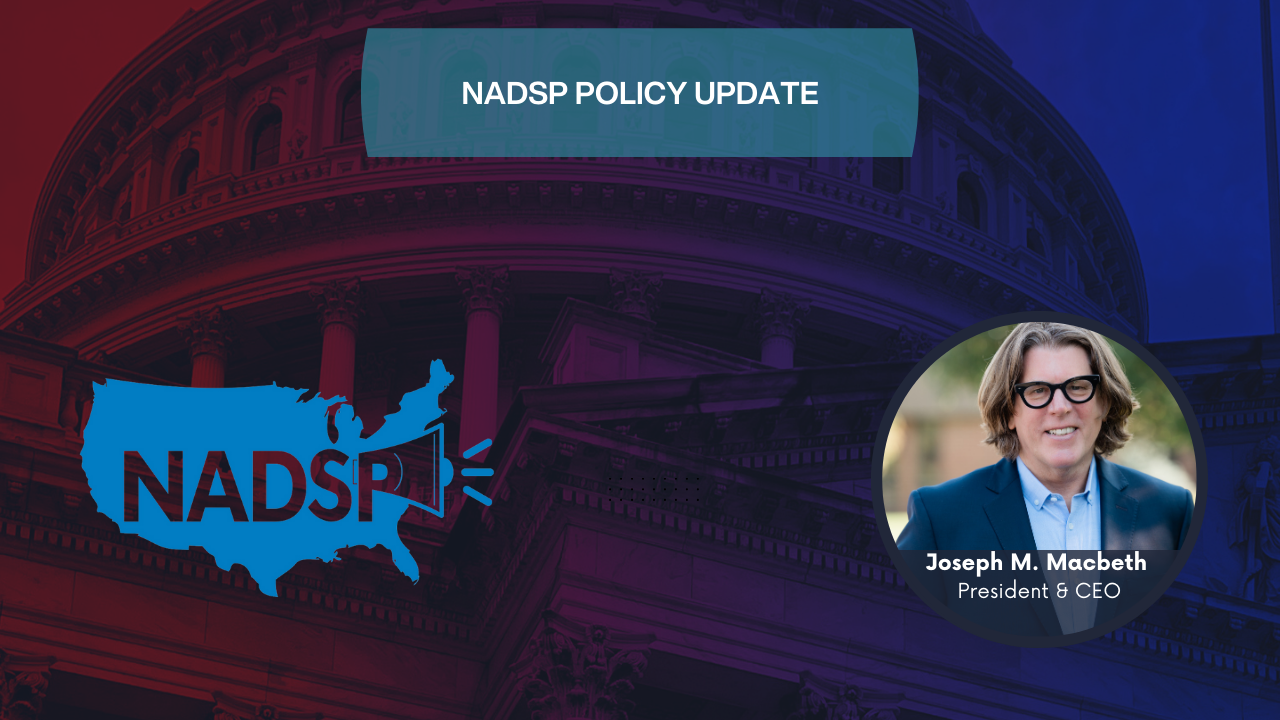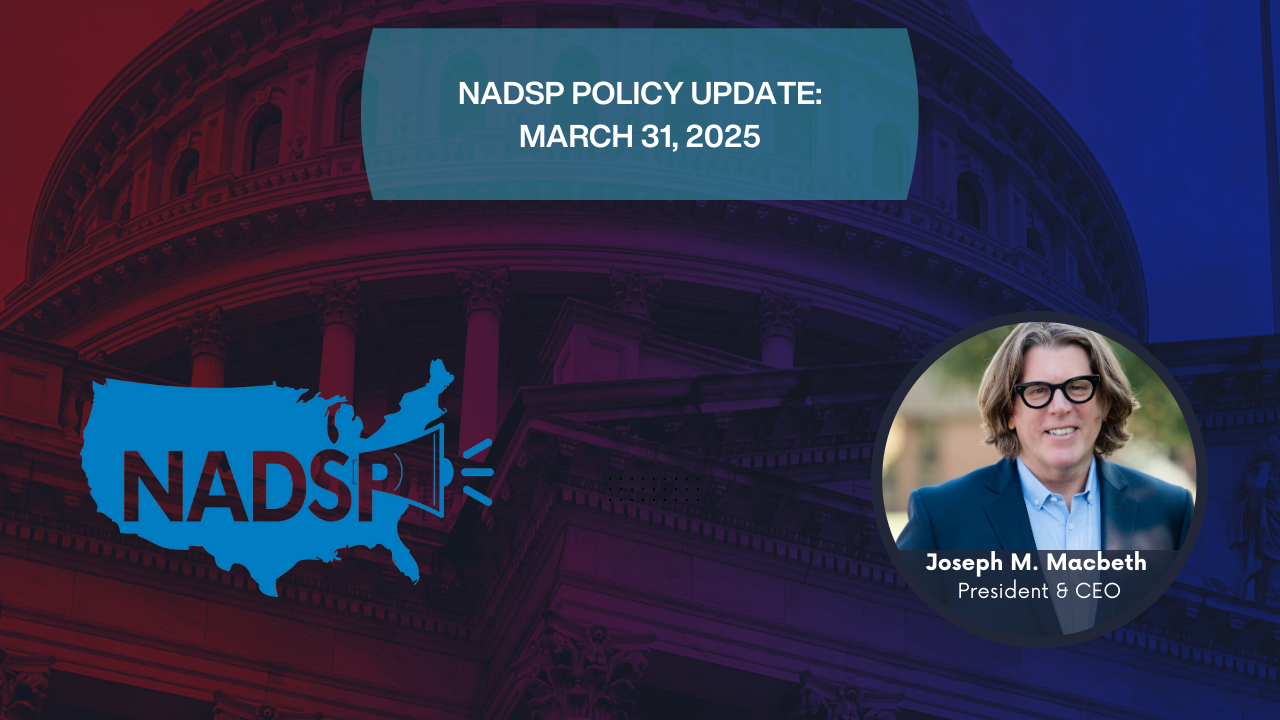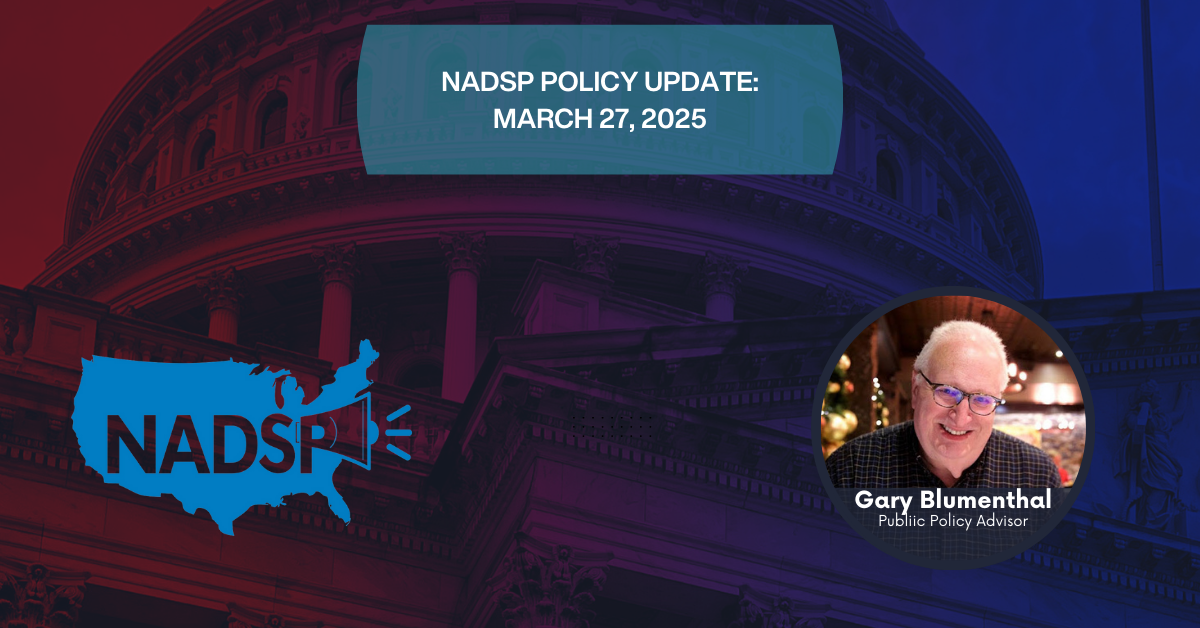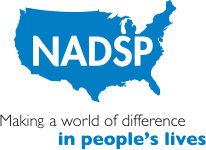
DSP Voter Guide
*Disclaimer: The National Alliance for Direct Support Professionals (NADSP) is a non-partisan 501(c)3 organization, this guide is meant to share information about policy areas relevant to the work that direct support professionals (DSPs) do but is not meant to encourage any candidate or position. We encourage all DSPs to use this and other materials to be prepared to exercise their right to vote.
Election 2024
The 2024 midterm elections will be pivotal in our ability to enact meaningful legislation that supports people with intellectual and developmental disabilities (IDD) and the DSP workforce that provides their services. Legislators make decisions every day that impact care. You don’t need to be an expert on these issues to ask those who represent you, why and how they care about people with IDD and DSPs.
Check Your Registration Status
The Federal government has a website where you can check your voter registration status. Many states have deadlines for registration, so be sure to check your registration status and register to vote, here: https://www.nass.org/can-I-vote
The Policy Issues Impacting DSPs:
Home and Community-Based Long Term-Services and Supports: The demand for community-based long term supports and services (LTSS) continues to be a critical issue, one that has never been funded int he way it should. Our country simply lacks a comprehensive, national system for long term care, or LTSS. The majority of these services are funded through Medicaid, a complex system that leaves many people waiting. To meet the need for HCBS, the federal government must take the lead in developing a coordinated, comprehensive approach to LTSS.
Medicaid: Medicaid is an essential program for older adults and disabled people who need LTSS, it is overwhelmingly the largest funding source of LTSS, specifically home and community-based services (HCBS), and the primary source of other traditional health care services for many older, and disabled adults, as well as for many direct care workers. Many states and territories continue to have inadequate Medicaid reimbursement rates, meaning that the federal/state funding for services, including worker wages do not account for the actual cost of the supports, leading to limited or reduced services, and low wages for direct care workers, as their salaries are factored into the rate. This has led to the extreme workforce crisis – providers are struggling to attract and retain workers, and workers are struggling to survive on poverty wages. This has driven a crisis in access — hundreds of thousands of people with disabilities and older adults on waiting lists for services across the country, often for years on end.
Workforce: A well-trained, fairly compensated DSP workforce is essential to providing the necessary supports and services to older adults and people with disabilities. Because Medicaid is the primary source of funding for the programs employing these workers, the fixes are not simple and have been overlooked by decision makers. The current underfunded Medicaid reimbursement system, cost cutting actions by state legislatures and Medicaid officials, and the stresses of the pandemic, have exacerbated the workforce crisis and the system they enable on the brink of collapse. These problems have been compounded over three decades, leading to a crisis that presents a grave threat to the lives of people with disabilities and older adults, and the care workers themselves. Major Federal investments to support this workforce with family-sustaining wages and a career path must be a priority when rebuilding the economy.
Direct Support Professionals & the 2024 Election
Join NADSP President and CEO Joe Macbeth for a discussion focusing on the 2024 National Election. As a 501(c)(3) organization, NADSP cannot support or oppose any candidates for public office. However, we are committed to providing direct support professionals and others with accurate information about disability-related issues and the voting process.
NADSP’s Senior Policy Advisor, Nicole Jorwic, presents a non-partisan review of each candidate’s platform concerning Home and Community-Based Services (HCBS), Long-Term Care, Medicaid/Medicare, and strategies to address the caregiving workforce crisis. Additionally, NADSP’s Director of Educational Services, John Raffaele, will share important insights on how direct support professionals can assist people with disabilities in the voting process by providing unbiased information and answering questions impartially.
Check Your Voter Registration Status
Additional Voting Resources
Direct Support Professionals Advocate with the People You Support. Now It’s Time to Advocate for You.
You likely advocate with the people you support quite often to ensure they have what they want in life. But there are relevant issues at hand right now that require DSPs to speak up for yourselves and your profession. In this issue, we give you the tools you need to develop your message to speak up and ask for changes you need to support your professional practice, and to exercise your right to vote.
Frontline Initiative is a series covering the issues important to direct support professionals and supervisors who support people with intellectual and developmental disabilities and other disabilities in a variety of community settings. Each feature issue contains resources, perspectives, and strategies to advance the profession of direct support. It is produced through the partnership between the Institute on Community Integration and the National Alliance for Direct Support Professionals
ASAN Voting Resources: A Self-Advocate’s Guide to Voting in the U.S.
The Autistic Self Advocacy Network (ASAN) is a grassroots disability rights organization run by and for autistic people which works to advance civil rights, support self-advocacy in all its forms, and improve public perceptions of autism. ASAN’s activities include public policy advocacy, the development of autistic cultural activities, and leadership trainings for autistic self-advocates.This toolkit is intended to help self-advocates learn who their elected officials are and what strategies they can use to have their voices heard by elected officials.
The toolkit focuses on the process of voting, and understanding how to prepare to vote on election day.
CQL Voting Resources
‘Get Out The Vote’ – Supporting People Ahead Of Election Day
The Council on Quality and Leadership (CQL) breaks down voting-related topics with impactful data, important legislation, and tips to promote civic engagement.
8 Ways to Support People Vote Infographic
This one-page infographic highlights 8 tips on how you can support people with their right to vote; perfect to handing out to staff or hanging up around the office around election time.
You May Also Be Interested In …

The Time For Advocacy Is Now!

Response to HHS on Autism

NADSP Policy Update: We Must Stop the Attack on Medicaid and Community Living

